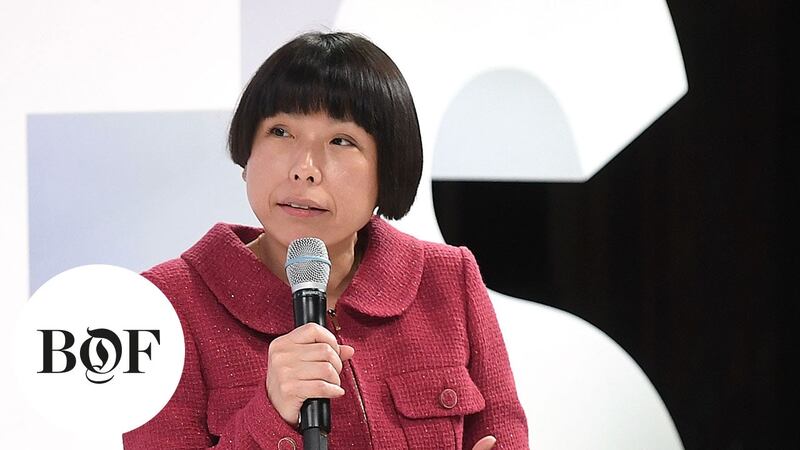
The Business of Fashion
Agenda-setting intelligence, analysis and advice for the global fashion community.

Agenda-setting intelligence, analysis and advice for the global fashion community.

The author has shared a YouTube video.
You will need to accept and consent to the use of cookies and similar technologies by our third-party partners (including: YouTube, Instagram or Twitter), in order to view embedded content in this article and others you may visit in future.
OXFORDSHIRE, United Kingdom — "In China it's slightly different from everywhere else, because we've had several generations of only children," said Vogue China editor-in-chief Angelica Cheung explaining why Chinese millennials have such spending power.
Speaking on stage in December at VOICES, BoF's new annual gathering for big thinkers, Cheung told BoF founder and CEO Imran Amed: "The millennials, I would describe them as the real consumers, the organic consumers. They consume for the sake of consuming. And they just love things, they want to buy... it’s not for any purpose."
Many brands, however, have not grasped how to communicate with this desirable new consumer, Cheung continued. "I feel a lot people are taking a very short term kind of approach to reaching the millennials," she said. "You see a lot of these male actors becoming spokespeople for women’s lipsticks, cosmetics products. I feel that’s quite crude."
Cheung's skills in communicating with Chinese millennials were proved when she created Vogue Me, a new edition of the title specifically designed for the millennial audience, which debuted in March 2016. When it launched, 30,000 copies of the online limited edition sold out within six minutes.
ADVERTISEMENT
"In general, these are not consumers that are easily influenced by preaching to them," Cheung said. "The way I do Vogue and the way I do Vogue Me is totally different. At Vogue, it's basically, 'I speak, you listen.' And they will listen. That kind of attitude. And with Vogue Me, they speak, I listen, then I try to digest and talk to them in a way that they can understand...
"So the goal is still the same, but the way to communicate that message needs to change, needs to adapt."
Related Articles:
[ Angelica Cheung: Cautiously Optimistic About China's Comeback in 2017Opens in new window ]
[ Vogue China: Past, Present and FutureOpens in new window ]
VOICES is BoF's new annual gathering for big thinkers in partnership with QIC Global Real Estate.
With consumers tightening their belts in China, the battle between global fast fashion brands and local high street giants has intensified.
Investors are bracing for a steep slowdown in luxury sales when luxury companies report their first quarter results, reflecting lacklustre Chinese demand.
The French beauty giant’s two latest deals are part of a wider M&A push by global players to capture a larger slice of the China market, targeting buzzy high-end brands that offer products with distinctive Chinese elements.
Post-Covid spend by US tourists in Europe has surged past 2019 levels. Chinese travellers, by contrast, have largely favoured domestic and regional destinations like Hong Kong, Singapore and Japan.